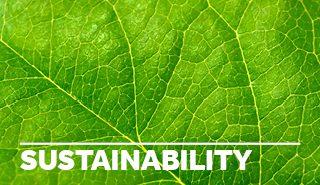Working together to reduce our travel carbon emissions
07 December 2022

New principles to guide sustainable business travel and commuting have been agreed by the University as it looks to significantly reduce its carbon emissions from travel.
Our recent high ranking in the People & Planet University League has shown the fantastic progress we have already made in reducing our carbon footprint, greening our operations and leading the way toward environmental sustainability.
But with urgent global action required to avoid the worst impacts of climate change around the world, and projections showing that this decade is crucial in our efforts to significantly reduce global carbon emissions, the University remains committed to further reduce our own carbon footprint and achieve Net Zero by 2030.
Key to this is working together to reduce emissions caused by University travel, which accounted for around a third of our annual emissions pre-pandemic.
A set of sustainable travel principles have been agreed to guide and support Schools and Functions as we work towards minimising the carbon impact of our travel choices. The principles will also inform a new Travel Policy for the University being developed throughout this academic year.
These will also be used to produce an updated Travel Plan to support and facilitate colleagues to reduce emissions caused by travel to and from our campuses.
Read more about the new principles for business travel
Read more about the new guidance on greener commuting
The ultimate aim of updating our policies and guidance is to reduce business travel emissions by at least 30% compared to pre-pandemic levels by 2026, and by 50% by 2030. Meeting these reductions is key to successfully achieving our net zero ambition.
More detailed work to determine how the principles will work in practice is being considered by a working group developing the new wide ranging Travel Policy, led by Lisa Jeffries, Director of Procurement
The new travel principles outline how travel decisions should be made and recorded. This includes:
- A digital-first approach to reduce the number of journeys needing to be undertaken by colleagues.
- Prioritising travel based on need and potential benefits to be gained.
- Better recording of the reasons for travel in booking and approvals processes.
- Safeguards to ensure staff health and wellbeing remain a fundamental consideration, and that changes to processes do not prevent all colleagues having equal opportunities to travel.
Read the full set of travel principles.
Restrictions imposed by the pandemic, including the ongoing financial impacts, have already greatly reduced travel since 2020. The clear targets outlined in the University’s new principles are intended to ensure travel emissions do not return to previous high levels and undermine the University’s Net Zero commitment.
Professor Mark Fellowes, Chair of the University’s Environmental Sustainability Committee, which has approved the principles, said: “The University has ambitious sustainability targets and we thank colleagues for their continued support and contributions towards making these happen. Despite our great progress so far, a considerable reduction in our emissions from travel is absolutely essential if we are to meet our ambitions.
“As an engaged university with a culture of wanting to make a positive difference to the world, we recognise that face-to-face contact with colleagues and international collaborators is important. What we hope these principles will do is help us all think more carefully about our journeys and, where they do happen, we will work together to make them count.
“We encourage all colleagues to embrace these principles now and work together within Schools and Functions to plan ahead for lower carbon travel across the University”

